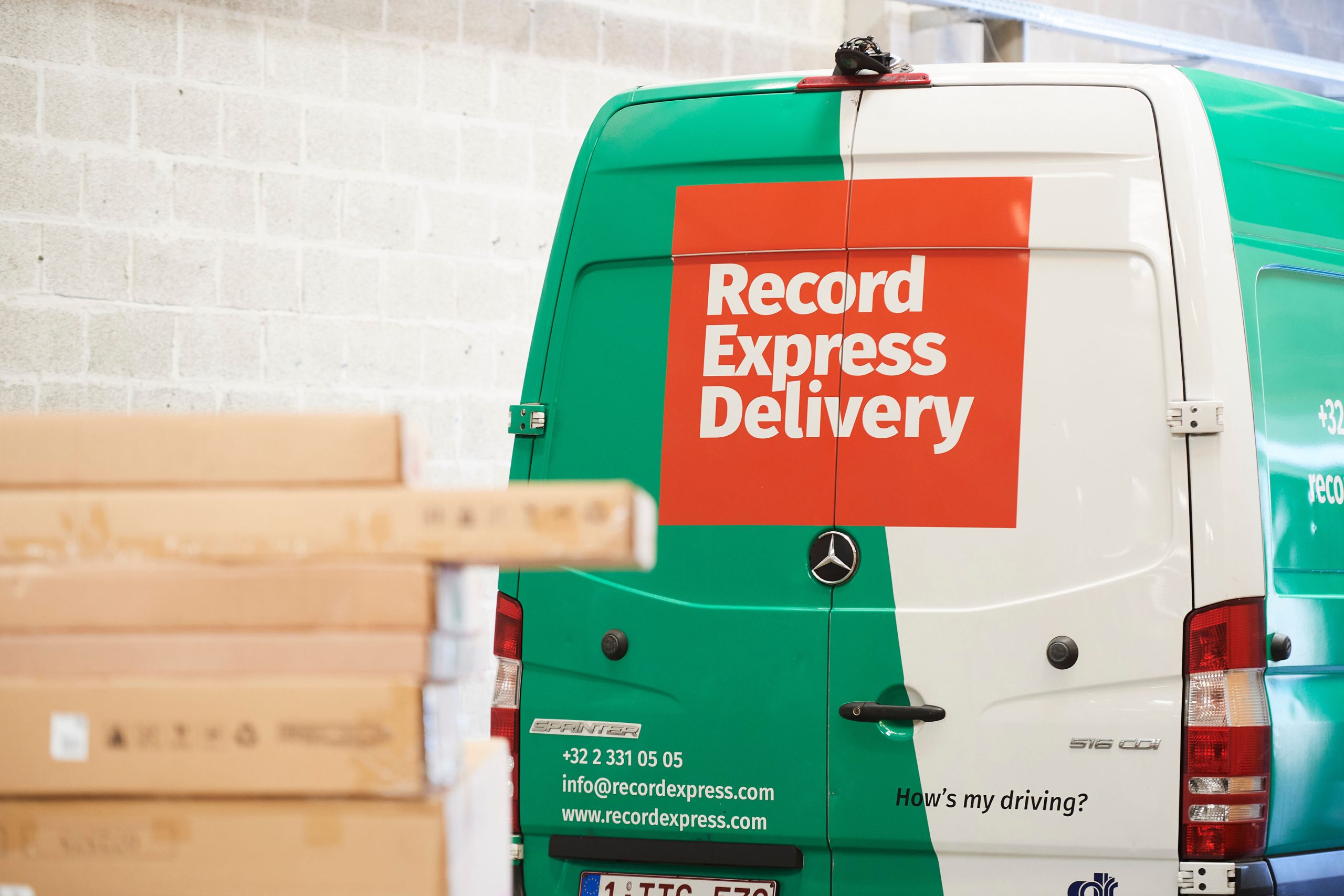Conformité douanière pour les livraisons internationales
La conformité douanière permet de s'assurer que les marchandises entrant ou sortant d'un pays répondent à toutes les exigences légales et réglementaires. Pour les livraisons internationales, les entreprises doivent préparer des documents précis, respecter les règles douanières de l'UE et de la Belgique et éviter les erreurs susceptibles d'entraîner des amendes, des retards ou des saisies d'envois. ENVOYER LE COLISHome / Logistique du commerce électronique / Conformité douanière pour les livraisons internationales

Conformité douanière pour les livraisons internationales
TL;DR : La conformité douanière permet de s’assurer que les marchandises entrant ou sortant d’un pays répondent à toutes les exigences légales et réglementaires. Pour les livraisons internationales, les entreprises doivent préparer des documents précis, respecter les règles douanières de l’UE et de la Belgique et éviter les erreurs susceptibles d’entraîner des amendes, des retards ou des saisies d’envois.
Que signifie la conformité douanière dans le domaine de la logistique ?
La conformité douanière est le processus qui consiste à respecter les lois, les réglementations et les exigences en matière de documentation établies par les autorités douanières pour le commerce transfrontalier(Commission européenne – Douanes). Elle couvre toutes les étapes d’une expédition, de la classification des produits au paiement des droits et de la TVA. Pour les opérateurs logistiques, la conformité ne consiste pas seulement à éviter les pénalités, mais aussi à permettre la libre circulation des marchandises à travers les frontières d’une manière que les autorités reconnaissent comme légale et transparente.
- Veiller à ce que les marchandises soient légalement importées ou exportées
- Classification précise des produits (codes SH)
- Paiement des droits de douane, de la TVA et des autres taxes applicables
- Maintenir des pistes d’audit claires
- Instaurer la confiance avec les autorités douanières et les partenaires logistiques
Les entreprises qui investissent dans des systèmes de conformité ont plus de facilité à prévoir les temps de transit et à faire des promesses de livraison fiables à leurs clients. Un dossier de conformité solide facilite également les inspections futures, car les agences douanières appliquent souvent une approche basée sur le risque.
À emporter : La conformité douanière est un gage de certitude pour le commerce mondial. Elle transforme la douane d’une barrière en un point de contrôle prévisible.
Pourquoi la conformité douanière est-elle importante pour les livraisons internationales ?
La conformité réduit le risque d’amendes, de retards et d’atteinte à la réputation des entreprises lors d’expéditions internationales(Douanes et Accises belges). La livraison internationale est complexe : les marchandises traversent de multiples juridictions, chacune avec ses propres règles. Même au sein de l’UE, le Brexit a montré comment les changements de réglementation peuvent instantanément créer des frictions dans des flux commerciaux auparavant fluides.
- Détenus pour inspection ou détruits
- Retardé en raison d’une documentation manquante ou inexacte
- Pénalités inattendues
- Exposé à un risque de réputation auprès des clients
Les industries qui traitent des produits réglementés sont confrontées aux enjeux les plus importants. Les produits pharmaceutiques, les produits chimiques, les produits alimentaires et les produits électroniques doivent tous être strictement conformes à la législation européenne et belge. Les retards ne sont pas seulement coûteux, ils peuvent aussi compromettre l’intégrité du produit ou enfreindre les normes de sécurité.
À retenir : La conformité est à la fois une obligation légale et un moyen de préserver les performances opérationnelles et les relations avec les clients.
Quels sont les documents requis pour le dédouanement ?
Les principaux documents douaniers comprennent les factures, les déclarations et les certificats qui décrivent les marchandises et leur origine(Organisation mondiale des douanes). La documentation est l’épine dorsale des opérations douanières, car les autorités s’appuient sur les déclarations écrites pour évaluer les droits, vérifier l’origine et s’assurer que les marchandises soumises à des restrictions sont correctement gérées.
- Facture commerciale – détaille la valeur, l’acheteur et le vendeur
- Liste de colisage – indique le contenu, le poids et les dimensions.
- Déclaration en douane – déclaration formelle des marchandises à dédouaner
- Certificats d’origine – prouvent où les marchandises ont été produites
- Licences d’importation/exportation – requises pour les marchandises soumises à des restrictions
La numérisation améliore ce processus. Le modèle de données douanières de l’UE et les plateformes de déclaration numérique de la Belgique facilitent la soumission et le suivi des documents. Toutefois, les entreprises doivent toujours veiller à la cohérence des données : une différence entre la valeur de la facture et celle de la déclaration peut entraîner des retards coûteux.
À retenir : L’exactitude des documents est le facteur le plus important pour garantir un dédouanement sans heurts.
Quelles sont les erreurs les plus courantes en matière de conformité douanière ?
Les erreurs les plus courantes sont les codes erronés, les documents manquants et la sous-évaluation des envois(DHL Customs Guide). Même les entreprises expérimentées commettent des erreurs lorsqu’elles considèrent les douanes comme une question secondaire.
- Classement erroné de marchandises avec des codes SH incorrects
- Absence de certificats d’origine ou de licences
- Déclarer des valeurs de produits inexactes
- Signatures manquantes ou documents incomplets
- Si l’on part du principe que le libre-échange au sein de l’UE ne nécessite pas de contrôles, il n’y a pas lieu de s’en inquiéter.
Chacun de ces problèmes peut interrompre un transport dans son élan. La sous-évaluation des marchandises pour réduire les droits de douane, par exemple, peut sembler un raccourci, mais elle déclenche des audits qui peuvent nuire à la crédibilité à long terme. De même, une mauvaise tenue des registres expose les entreprises à des contrôles de conformité ou à des litiges.
À retenir : La plupart des problèmes douaniers peuvent être évités. L’intégration de la conformité dans les processus logistiques quotidiens permet d’éviter les erreurs récurrentes.
Comment les entreprises peuvent-elles rester conformes ?
Les entreprises doivent faire appel à du personnel formé, à des outils numériques et à des partenaires logistiques fiables pour maintenir la conformité(Commission européenne – Trade Helpdesk). La conformité n’est plus une simple tâche administrative ; elle nécessite une coordination entre les services juridiques, financiers, logistiques et informatiques.
- Formation du personnel aux règles douanières et à leur mise à jour
- Partenariat avec des courtiers en douane agréés
- Utilisation d’un logiciel pour classer les codes SH et calculer les droits de douane
- Tenue d’un registre complet des expéditions à des fins d’audit
- Choisir des transporteurs expérimentés dans le commerce transfrontalier de l’UE et de la Belgique
La technologie est un facilitateur majeur. Les plateformes de conformité pilotées par l’IA peuvent signaler les codes SH incorrects, tandis que la blockchain est expérimentée pour créer des enregistrements douaniers immuables. Cependant, la technologie seule ne suffit pas. Les résultats les plus solides proviennent de l’association de systèmes intelligents avec des courtiers expérimentés qui peuvent interpréter les réglementations et gérer les exceptions.
À retenir : La réussite à long terme en matière de conformité dépend de la bonne combinaison de personnes qualifiées, de partenaires fiables et de technologies bien intégrées.
FAQ
1. La conformité douanière est-elle requise pour les livraisons de l’UE à l’UE ?
Non, les marchandises circulant librement au sein du marché unique de l’UE n’ont pas besoin d’être dédouanées, mais les règles en matière de TVA peuvent toujours s’appliquer.
2. Que se passe-t-il si la conformité douanière n’est pas respectée ?
Les envois peuvent être retardés, faire l’objet d’une amende ou être saisis, et les entreprises peuvent voir leur réputation entachée.
3. Les petits colis du commerce électronique doivent-ils faire l’objet d’une mise en conformité douanière ?
Oui, même les envois de faible valeur expédiés en dehors de l’UE doivent être accompagnés des documents douaniers appropriés.
4. Qui est responsable de la conformité douanière ?
Il s’agit généralement de l’importateur/exportateur officiel, mais les transitaires ou les courtiers en douane gèrent souvent le processus pour le compte des entreprises.
5. Comment les codes SH affectent-ils la conformité douanière ?
Ils déterminent les droits, les taxes et les éventuelles restrictions spéciales applicables au produit.
Sources d’information

Record Express was awarded a 59/100 score by EcoVadis, the global leader in sustainability ratings.